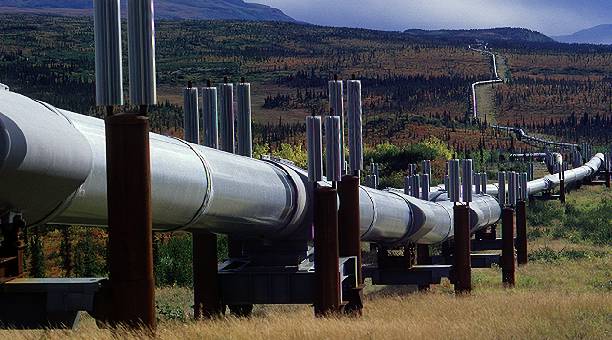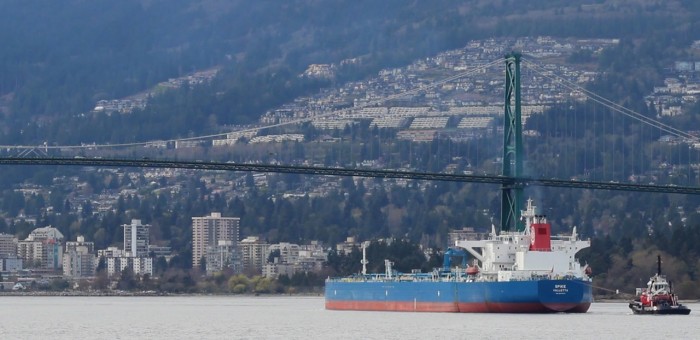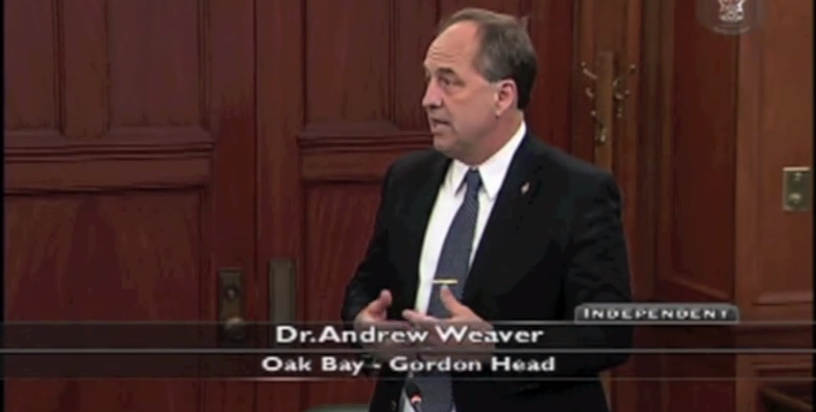Kinder Morgan
New Timeline for Kinder Morgan Hearings Creates Opportunity for Oral Cross-Examination
Media Statement: July 15, 2014
Weaver says NEB timeline extension creates opportunity for oral cross-examination
For Immediate Release
The National Energy Board’s extended timeline for Kinder Morgan’s Trans Mountain pipeline hearings offers a perfect opportunity to introduce oral cross-examination into the hearing process, according to Andrew Weaver, MLA for Oak Bay-Gordon Head and Deputy Leader of the B.C. Green Party.
The National Energy Board announced today that it has revised its timeline for the pipeline hearings. The new timeline will put the regular hearing process on hold for three months while Trans Mountain files supplementary information on its new pipeline corridor through the City of Burnaby.
“I support the three month extension so that the necessary information on the new route can be tabled and reviewed by the NEB and by intervenors,” says Andrew Weaver, who himself is an intervenor in the hearing process.
This three-month extension would have put the NEB’s final deadline to submit its recommendations to the Federal Cabinet right in the middle of next October’s Federal election. However, the timeline has been further extended by an added four months, pushing the decision until January 2016.
Extending the timeline for the Trans Mountain Hearing Process was debated earlier this year, when Andrew Weaver supported a motion that requested that the NEB include oral cross-examination as part of the Hearing Process.
Oral cross examination was crucial to uncovering gaps in Enbridge’s evidence during the NEB hearings on the Northern Gateway Pipeline. Unfortunately, the NEB rejected the motion on the grounds that they had to meet a legislated timeline for reviewing this project.
“Given that an extension has been granted so that new evidence can be brought forward, I hope the board will reconsider its decision on oral cross-examination,” said Weaver. “There is no replacement for questioning Trans Mountain’s evidence in person, particularly in light of the inadequate written responses that Kinder Morgan has been providing to intervenors.”
“If the Board is willing to extend the timeline so new information can be introduced by Trans Mountain, I would hope they would consider using the extended timeline so that something as essential as oral cross-examination could be introduced to test company’s evidence,” said Weaver.
Andrew Weaver is the only B.C. MLA with intervenor status in the hearings.
-30-
Media Contact
Mat Wright – Press Secretary, Andrew Weaver MLA
1 250 216 3382
Kinder Morgan Responses Unacceptable
Media Statement: July 3rd, 2014
Andrew Weaver: Kinder Morgan Responses Unacceptable
For Immediate Release
Victoria B.C. – Today, Andrew Weaver MLA for Oak Bay-Gordon Head and Deputy Leader of the B.C. Green Party has submitted a motion to the National Energy Board, asking them to compel Trans Mountain to provide full and adequate responses to questions that he submitted as an intervenor in the Trans Mountain Hearing Process. Many of Trans Mountain’s answers to his information requests were “incomplete” and “unacceptable”.
As a part of the National Energy Board hearing process on Kinder Morgan’s proposed Trans Mountain pipeline project, Dr. Weaver submitted nearly 500 questions to the company. Dr. Weaver’s questions focused on the risk and impact of an oil spill, the scientific underpinning of its oceanographic analysis, and on the extent to which people on southern Vancouver Island were consulted. Trans Mountain, a fully own subsidiary of Kinder Morgan Canada, recently submitted its answers to Dr. Weaver’s questions.
“Many of the answers I received are simply unacceptable,” says Andrew Weaver. “They are refusing to consider any oil spill larger than a small fraction of a tankers cargo, and basing their oil spill analysis on a response capacity that simply doesn’t exist. The lack of substantive response shows a disregard for the essential role that intervenors play in the hearing process.”
Collectively over 10,000 questions were submitted to Trans Mountain as a part of the first stage of information requests. With the National Energy Board’s ruling to exclude oral cross-examination from the hearing process, intervenors will only have one more opportunity to submit follow-up questions to the company.
Many intervenors have argued that the decision to exclude oral cross-examination has severely constrained their ability to hold Trans Mountain to account on its evidence. These concerns will ultimately be put to the test in the coming weeks when the Board makes its ruling on the adequacy of Trans Mountain’s answers. Intervenors have until July 4th to submit motions to the NEB requesting a ruling be made.
“Given the massive outpouring of opposition to the Northern gateway pipeline and the serious concerns that have been raised about heavy oil spills, it is hard to believe that Kinder Morgan wouldn’t be doing everything possible to assuage the concerns of intervenors and all British Columbians” said Weaver.
Submission to National Energy Board from Andrew Weaver – download here.
Media Contact
Mat Wright – Press Secretary, Andrew Weaver MLA
mat.wright@leg.bc.ca
1 250 216 3382
The bottom line is this. It’s our coast, and we deserve better.
The National Energy Board review process for Kinder Morgan’s Trans Mountain pipeline is now well-underway.
If the project is approved, we would see an increase from 60 to more than 400 heavy oil tankers leaving Vancouver harbour each year. Those tankers would then pass around the tip of southern Vancouver Island—an area identified by the federal Tanker Safety Expert Panel as being one of the most high risk areas in Canada for an oil spill.
The thought of this enormous increase in tanker traffic alarms me, and I know I’m not alone. With more oil tankers comes more risk of an oil spill—one that could destroy our pristine coastline and devastate our local communities. The whole idea undermines Vancouver’s award-winning efforts to become the world’s greenest city by 2020.
That’s why I applied to be a full participant in the Kinder Morgan hearings. My constituents, and British Columbians across our province, will be affected by this pipeline and they deserve a voice in the process.
Last week I joined dozens of other participants in submitting questions to Kinder Morgan on their application. With a 15,000 page application to review, and only one month to submit questions, I chose to start by analyzing Kinder Morgan’s evidence around oil spills: How likely are they? What impact will they have? And how effectively can we actually clean them up? I also asked about whether my constituents, and others in the coastal communities, were properly consulted, given the impact this project could have on their health and livelihoods.
If the number of questions a participant submits is any indicator, I had nearly 500 questions on oil spills and consultation alone. Collectively, participants submitted thousands of questions on these and other topics as we try to better understand what this project will really mean for British Columbians.
Here are just a few examples of the areas I asked about:
1) Federal studies clearly show that, unlike most other crude oils, the diluted bitumen Kinder Morgan will be transporting through its pipeline is so heavy that when it mixes with suspended particles in the ocean, it sinks. If there is one thing we have plenty of in our coastal waters, it is suspended sediments. Unfortunately, Kinder Morgan’s oil spill response is based entirely on the faulty assumption that the spilled oil would float. How are they going to respond when it actually sinks?
2) When assessing the impact of an oil spill and their ability to clean it up, Kinder Morgan based their projections on near-perfect conditions, including: 20 hours of daylight, pristine weather with only minimal waves, the availability of all staff and equipment to respond, and of course, floating oil. They also assumed that they would have twice the response capacity available to them as currently exists. Despite these ideal circumstances, they only predicted that 45% of the oil would be recovered. Even then, they acknowledge that their model isn’t consistent with historical averages (generally only 5-15% of spilled oil is ever recovered). I asked Kinder Morgan to redo their model analysis to offer realistic projections, based on credible assumptions, so that we can know what to really expect.
3) A typical heavy oil tanker will carry more than 100,000 tonnes of oil. Yet in their analyses, Kinder Morgan assumed a worst-case scenario that only 16,500 tonnes would ever “credibly” spill at a time. That may be true according to Kinder Morgan’s calculations, but credible risk analyses consider the full range of scenarios, including one where the ship sinks and all of its oil is released. How can we know the full risk that comes with these tankers, if the worst-case scenario is excluded from consideration?
Ultimately, in applying to build their pipeline, Kinder Morgan is applying for a social license from British Columbians. Earning that social license begins with providing credible evidence that can stand up to thorough cross-examination.
Kinder Morgan has already advocated excluding oral cross-examination from the hearing process. Those who followed the Northern Gateway hearings know just how significant this change is.
What the above points suggest is that Kinder Morgan’s submitted evidence is far from complete. After reading countless pages of documents it’s pretty clear to me that neither Kinder Morgan, the scientific community, nor the federal or provincial governments have even a cursory idea of what would happen in the case of a catastrophic diluted bitumen spill in our coastal waters.
The bottom line is this. It’s our coast, and we deserve better.
Details Needed on Spill Response, Scientific Data and Consultation from Kinder Morgan
Media Statement: May 12, 2014
Details Needed on Spill Response, Scientific Data and Consultation from Kinder Morgan
For Immediate Release
Victoria B.C. – The deadline for intervenors to submit initial questions and information requests to the National Energy Board on the proposed Kinder Morgan – Trans Mountain pipeline project passed at noon (pacific time) today. The office of Andrew Weaver has submitted close to 500 questions for this phase of the hearing process, concentrating on the science surrounding the risk and likely impact of an oil spill, Kinder Morgan’s ability to respond and cleanup a spill, and the consultation that was done with affected island coastal communities.
Andrew Weaver is participating as an intervenor in the N.E.B. as the elected representative of the riding of Oak Bay – Gordon Head, a community that will be directly affected should a spill occur on the oil tanker route.
“I am very concerned about the evidence used to justify Kinder Morgan’s assertion that it can deal with a heavy oil spill. As we saw with the Northern Gateway hearings there simply has not been adequate research on how heavy oil behaves in a marine environment, or if it is even possible to clean it up” said Andrew Weaver “We have submitted detailed questions to the company and I trust they will respond with comprehensive answers”
The N.E.B. hearings on the Kinder Morgan pipeline expansion continue into 2015 with a final report anticipated next summer. Unlike the Northern Gateway hearings no oral cross examination of the company or experts is provided, only written questions and responses are allowed.
To see the questions submitted to the National Energy Board click here:
Media Contact
Mat Wright – Press Secretary, Andrew Weaver MLA
mat.wright@leg.bc.ca
1 250 216 3382
Question Period – Andrew Weaver calls on government to protect credibility of its 5 conditions for Heavy Oil Pipelines
Media Statement, May 8th 2014
Andrew Weaver calls on government to protect credibility of its 5 conditions for Heavy Oil Pipelines
For immediate release
Victoria, B.C. – Andrew Weaver, MLA for Oak Bay – Gordon Head and Deputy Leader of the B.C. Green Party, calls on the B.C. government to explain its silence on the National Energy Board’s Kinder Morgan – Trans Mountain pipeline hearing process, as local governments and other intervenors raise strong concerns about a defective process.
The government missed an important opportunity to weigh in on a key motion, that called on the National Energy Board to introduce oral cross-examination into the hearing process.
Oral cross-examination played a critical role in the Joint Review Panel hearings on the proposed Northern Gateway Pipeline. The cross-examination period lasted more than 90 days with the Province itself requesting over 8 hours of that time. It was essential in assessing the extent to which the project met the B.C. Government’s 5 conditions, and helped uncover serious gaps in Enbridge’s evidence ultimately leading the province to conclude that it could not support the project at that time.
However, oral cross-examination has been replaced in the current Trans Mountain hearing process, with only two opportunities to submit written questions. First Nations groups, cities including Victoria, Vancouver and Burnaby, and many other intervenors have raised significant concerns about the ability to adequately assess Trans Mountain’s evidence. This concern is amplified by the short timeline that gives intervenors little more than one month to read the 15,000 page application and submit their first round of questions.
This precedent-setting change comes along with a federally legislated timeline that shortens the length of the Kinder Morgan hearing process and all future hearings. However, the need to ensure fairness must remain paramount and at least one intervenor–Elizabeth May, Member of Parliament for Saanich-Gulf Islands and Leader of the Green Party of Canada–is considering legal action over the removal of oral cross-examination.
“The final argument that the government prepared at the conclusion of the Joint Review Panel hearings on the proposed Northern Gateway Pipeline was a substantial and articulate document that relied heavily on oral cross-examination to make the case for why the Province was unable to support that proposal at this time. The fact that the government has remained silent on the absence of oral cross-examination in the Trans Mountain hearings, raises significant concerns, and is putting the credibility of its 5 conditions at risk.” said Andrew Weaver.
Background Documents:
Backgrounder 1 – Comparison of NGP and TMP
Media Contact:
Mat Wright – Press Secretary Andrew Weaver MLA
mat.wright@leg.bc.ca
1-250-216-3382
The Hansard transcript of the Question Period interaction is reproduced below.
A. Weaver: On April 14 Robyn Allan, one of 400 interveners in the Kinder Morgan hearings, submitted a motion asking the National Energy Board to introduce oral cross-examination into the process.
I joined many other interveners in writing a letter of support for Robyn Allan’s motion, as I felt this was the best way to formally express the importance of such cross-examination.
Madame Speaker, the government had ten days to submit their own letter of support, but they didn’t. A letter from the province would have had a profound influence on the NEB. Yesterday the NEB ruled on Robyn Allan’s motion and a similar motion tabled by MP Elizabeth May, dismissing their requests for oral cross-examination.
My question is to the Minister of Environment: given the government’s own comments that oral cross-examination of Enbridge was an essential part of determining whether or not the project met their five conditions, why did the government not take this opportunity to stand up for British Columbians and formally request oral cross-examination in the NEB hearing process?
Hon. M. Polak: I thank the member for his question and thank you for alerting me to his interest in the matter.
With respect to the National Energy Board hearings, I know the member is aware that they are a body that designs its own standard for how those hearings occur that we as a province do not influence.
Nevertheless, to the member’s question, the oral cross-examination, direct cross-examination, is not the only way in which one can put forward a case. In fact, there are still opportunities for participants to ask questions of Kinder Morgan and present their own information and perspectives to the panel. Interveners have the option to file detailed written information requests that Kinder Morgan is obliged to respond to — and in fact, in writing.
Also, interveners have the ability to address the review panel in person and to make their arguments and file written evidence.
With that knowledge, Madame Speaker, we determined that the opportunities were still sufficient for us to provide as strong an argument for our five conditions around Kinder Morgan as we did in the northern gateway hearings.
A. Weaver: Thank you to the minister, through you, Madame Speaker, for the response.
Oral cross-examination was essential to assessing the extent to which the project met the government’s five conditions. It uncovered serious gaps in Enbridge’s evidence and led the province to conclude that it could not support the project.
For the Kinder Morgan pipeline expansion project, oral cross-examination has been removed by the NEB. On April 23, I submitted an open letter to the Premier asking her to consider formally calling on the National Energy Board to introduce oral cross-examination. Two days ago I received a response that stated the following: “The province will use every forum available to ensure that the five conditions are met.”
I respect that response. However, my question to the minister is this: does the government believe that two written requests are sufficient to assess the meeting of the proposal with its five conditions? And if not, what other forums is the government using to ensure that it will receive sufficient information to assess its five conditions?
Hon. M. Polak: Again, I thank the member for the question. He will no doubt be aware that the province has not only committed to participating in the process, but we’ve actually been making our preparations to participate for months now as we approach the deadlines for submission.
For us, we still believe that with respect to our ability as interveners to request information in writing from Kinder Morgan…. We believe that we can do that in a detailed way that will provide us the information to evaluate. We also believe that we can provide to the panel, in person, an effective argument on behalf of our five conditions.
But it’s also important to note that the passage through the NEB process successfully is only one condition for us as a province. If we are not provided with sufficient evidence — not just commitments, but sufficient evidence — from the hearings, we certainly will maintain a position that upholds our five conditions.
We have seen that at the end of the northern gateway hearings when we concluded with a submission that, in fact, presented a lack of support from British Columbia. We will take the same approach here, entering neutral if we’re not provided with sufficient evidence, we will take the same approach.







